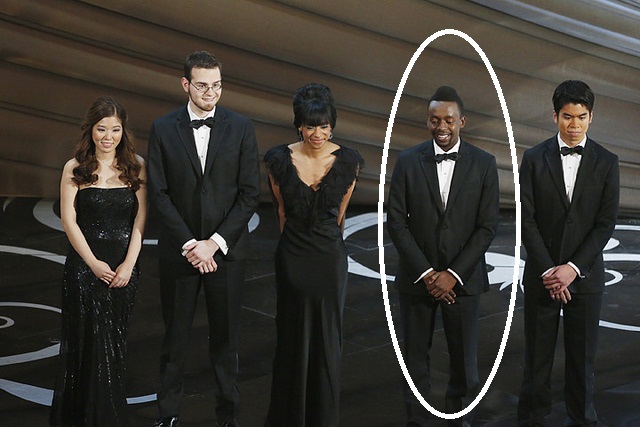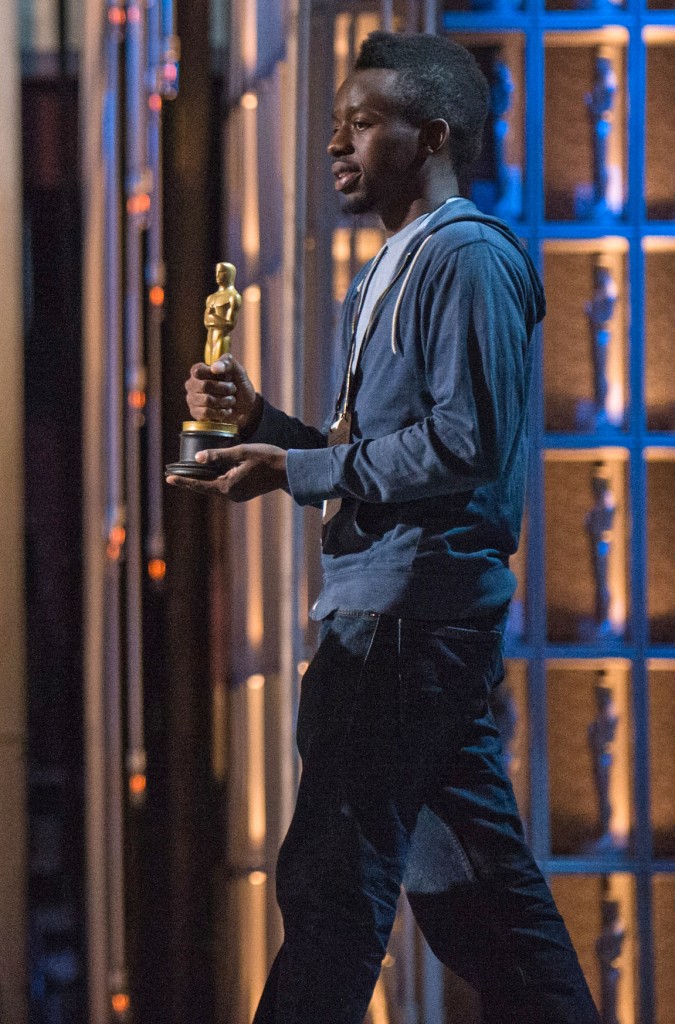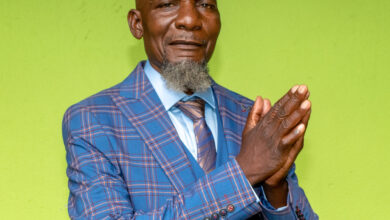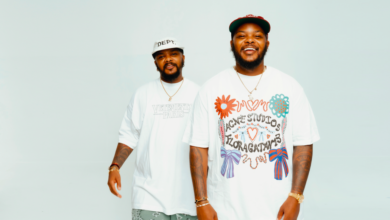Funny And Inspiring Interview With The First Ever Oscars Acclaimed Zimbabwean Tatenda Mbudzi
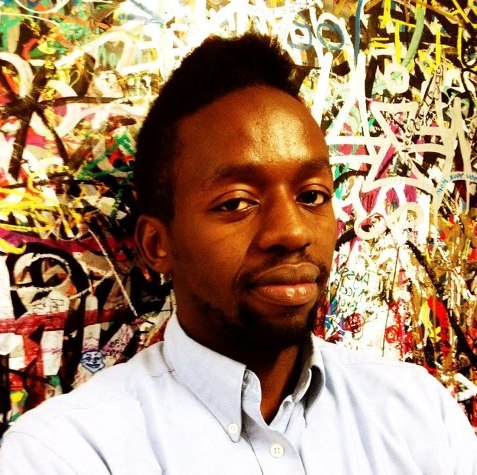
Tatenda Mbudzi became the first ever Zimbabwean to grace the Oscars stage as he was presented as “The future of Film” at the ceremony. Now about to release the first ever African High School movie, here’s what he had to say about the project, oscars and working with A-LIST actors in Hollywood.
Q: Who is Tatenda Mbudzi?
A: Tatenda Mbudzi is an artist. He is someone who seeks to challenge and explore the way we move through the world. He works in film, television, stand-up comedy, illustration, music and staring contests. He writes, he acts, he directs and he knows how to moonwalk.
Q: When did your passion for film making start, did you study film making?
A: Cartoons hypnotized me from a young age. I watched VHS tapes of Predator, Poltergeist and Looney Toons over and over again when I was seven. Then when my Grandmother visited I used to think “ugh I just wanna watch TV” then, she would tell Ngano (Folktales). And I was hooked. I noticed similarities between Tsuro (of Tsuro na Gudo – Rabbit and Baboon), Bugs Bunny –and myself. I realized I wanted to tell stories. I then consumed as much as I could and drew a lot. Drawing has always been my way of escaping; and reconnecting with the world. Characters that I love in film or any medium, are those that help me put my own life in perspective, they inspire me and/or challenge me. My passion comes from creating characters that do the same. I have a Bachelor of Science in Television & Radio with a minor in Integrated Marketing from Ithaca College in Upstate New York. And I have a Master of Fine Arts from the Producers Program at the University of California Los Angeles. I also learned a great deal from working at studios such as Universal Pictures, 20th Century Fox, and Sony Pictures Television and companies like Xbox and Anonymous Content.
Q: How does it feel to have been the first ever Zimbabwean on the Oscar stage and be presented as “The Future Of Film”?
A: To this day, sometimes I look up at the Oscars poster on my wall, and think “Wow, that actually happened: I replaced a hot model”. In all seriousness, it was a great honor. It was validation and acknowledgement of my wildest dreams; and it put a human face on this mysterious and otherworldly place where movies and tv come from. It connected me physically with a place that I contacted in my imagination. It’s hard to put that in words. It allowed me to realize that I too can do it – and that we are all human beings, breathing the same oxygen. It was like meeting Morpheus. It also made me want to do a LOT more. Why shouldn’t Zimbabwe have globally successful films showing around the world? They presented us as “The Future of Film” and I take that as a real responsibility, because I believe in the power that film has to impact people’s lives in a positive manner. Not only emotionally – but culturally, and economically.
Q: How did your work end up at the Oscars, how did you get them to recognize your work?
It was a lot of strange coincidence; or fate? I was in the class at UCLA where Seth MacFarlane announced the competition. I had just come from a class with James Franco. That was a very surreal day at UCLA. The Academy did an open call for the competition. Thousands of people applied. We had to write an essay about what the Oscars mean to us and society as a whole, and talk about a favorite past winner. I discussed the idea that Oscar winning films usually represent the hopes and fears of society – or what society thinks it is. They also asked us to record a 30 second video discussing how we would change the Future of Film – my answer to that question is here: https://www.youtube.com/watch?v=0z47pE6XUm4
Q: How was the experience of working alongside the genius James Franco?
A: Priceless. The man’s work ethic is frightening and inspiring. He is very attentive – he read all our scripts – gave great feedback. And then he would be flying off for a press conference for OZ THE GREAT AND POWERFUL or directing his own film, or something else. His passion is infectious. It was a great learning experience because we worked with A-list talent; and he was so open about the film-making process. He helped me understand what it means to collaborate.
Q: How did the idea of The First African Teen Movie come about?
A: High school in Zimbabwe is a very unique experience. Prefects, Corporal Punishment, racial dynamics. I started telling people it was like Harry Potter, without the magic. Whenever I told people in the US about my experiences they would look at me in shock. There are times at school when I laughed so hard I would cry, just at the ridiculousness of things that happened. And then there we’re painful moments too.
I was in Los Angeles in my steaming hot apartment in North Hollywood(we didn’t have effective AC), and I was reflecting on my life, and feeling frustrated because I wasn’t happy with my job (or I couldn’t find one) and I couldn’t figure out what I was doing; none of my projects were finding traction – even though I had had a lot of success. I took a long hard listen to myself and found that I was afraid to fully dive into what I REALLY wanted to do (acting/directing/writing) because there was this voice that said it wasn’t sensible, that I need a stable job – and I kept tracing it back to the high school environment in Zimbabwe. No one usually dives fully into creative careers it’s usually the trinity of doctor, lawyer, accountant. The reason I actually pursued film is because I loved it that much, and my Father encouraged me to “Never stop dreaming”. Then after thinking more about high-school, I realized that there were a lot of deep seated issues (like being bullied; picked on; or rejected) which in some ways were still affecting me. . I remember for me high-school was a place of hope (because I was working towards my dreams, and I was a “boffin”) and despair (because I was small; and my name means “Thank You Goat”). So the whole story came from that.
That and being a frustrated African in Hollywood; “Africa” is always mentioned in some throwaway line in movies – especially teen films. In Mean Girls, Lindsey Lohan’s character is shown in Africa with a leopard and a Masai Tribe; in HEATHERS they talk about starving children in Africa etc. So I thought, why not make a Teen Movie which talks about what it’s REALLY like being a teenager in Africa, specifically in Zimbabwe – with characters who don’t give a flying frisbee what the rest of the world thinks; and some who do. Then ZIM HIGH happened. I sent it to the Sundance International Writers Lab and it was a semi-finalist (last handful of scripts) twice.
Q: Tell us more about the project?
A: It’s about self-acceptance. As I wrote the movie – I realized I was using it as chance at redemption. To stand up for myself and my dreams all those times that I didn’t. It’s about a 17 year old student by the name of Tatenda who desperately NEEDS to be a Prefect so he can study Anime in Japan – but he gets framed in a bullying ritual which goes wrong: THE GAUNTLET (you run through a crowd of peers who try to tackle you) and his prefect campaign is over; but he meets a rebellious Aboriginal Australian exchange student with a very different world view who decides to help him become a prefect. It’s about protecting your dreams in spite of peer, economic and parental pressure. It explores all the unwritten social rules we see in the Zimbabwean High School ecosystem too. Who you can date is dictated by race and class. Prefects are all powerful. ZIM HIGH takes all these things to the EXTREME, so while it is The First African Teen Movie – it is very Young Adult thematically. A lot of Young Adult books and films take teen issues – and use metaphor and fantasy to explore them thus becoming Young Adult. While I thoroughly enjoy these books and movies (Harry Potter, Divergent Series, Hunger Games etc.) I wanted to make something that didn’t hide behind any parallels. This is an African Teen Movie – just being that makes it Young Adult.
Q: Any famous faces we can expect to see in the movie?
A: We have interest from Richard Cosnett who is stars in THE FLASH and VAMPIRE DIARIES – hopefully we get more Zimbabwean star power to join the project. I can keep you posted on any new announcements if you like!
Q: Do you also act in the films that you make?
A: Yes I do; but not always, just depends on how I feel about the project. In this case, because the film is about self-acceptance, I feel it would be hypocritical not to cast myself. There is also a practical reason for this. So few films and TV shows get made with black people in them; I figure I shouldn’t sit around and complain – I should just cast myself. When I first started drawing at age five I would only draw white characters – because that is all I saw; I feel that subconsciously there is an effect on self-esteem of not seeing people who look like you in places of cultural significance. And nowhere is more significant in our generation than TV and Movies. So every time I have second thoughts about casting myself – I have to ask, “Is that me –or is that just the history of all the films I have seen that don’t have legitimate black characters in them”. I do also just act – last week I performed in the lead role in ALMASI’S staged reading of NO GOOD FRIDAY by Athol Fugard. (ALMASI is an Arts Foundation created by Danai Gurira (Michonne from the Walking Dead)) I have always loved theatre – I grew up in the Allied Arts, did school plays. Drawing and acting are my first loves – the rest comes from there. There is also such great talent in Zimbabwe – especially watching this years National Institute of Allied Arts Eisteddfod – we NEED to rally around this talent and give them a platform; I don’t want to be the only actor in this film!
Q: How can people get involved and help?
A: SHARE THE CAMPAIGN and CONTRIBUTE TO IT. They can visit the Indiegogo site – and help the movie get made. (http://igg.me/at/zimhigh/x/76413) This is not a donation – there are a variety of themed perks which people can get. You get a download of the movie after theatrical release – art designed by the main character and more! Not only that; you are saying yes to seeing Zimbabwean and African people on the big screen! And you are changing HISTORY. There was a time when black people were not allowed in the cinemas in the US, and in Zimbabwe, and South Africa. Now let’s get them on the actual screens too!
Q: What do you make of the Zim film industry and how do you think we rate with the rest of the world?
A: I think it is growing but too slowly. Getting to Hollywood Level will take time, but sometimes all it takes is one film. Like Tsotsi; or District 9. I think we need Zimbabwean industries to step up to the plate and support the Zim Industry in a real way. Like the way HIFA gets support. I love HIFA-I volunteered there when I was in high-school – it shows there is so much talent here. Film & TV and the arts contributed nearly $700 billion dollars to the GDP of the US; (http://www.latimes.com/business/la-fi-arts-culture-gdp-20150112-story.html) there is heavy government subsidy for film in the UK and in Europe. There is major international co-production happening next door in South Africa (CHRONICLE, AVENGERS, SAFE HOUSE list goes on). Why can’t Zimbabwe do the same? I think there is a lot of potential in here; film is like mining. Except you are digging for human experience – it is an infinitely renewable resource. Companies and organizations need to take it more seriously, and support the dreams of young people; who will then support them back. That said – the general public also needs to support our own artists. We need to encourage our kids – to develop their talents in order to build a world class industry. In terms of story (before script, or production)– I think we have great stories that need to be told. Right here. In Zimbabwe. It’s just about having the courage to execute them creatively and commit to them financially.
Q: Can someone make film making a full time career in Zimbabwe, would you encourage someone with same passion to pursue film making in Zimbabwe?
A: Honestly, I would say do what makes you happy. Whether that’s painting, fishing, or looking at numbers. If it is film. Then do it. I guess you should ask me when the film is done! It will be hard, and at times it will be lonely. But do it. I said Zimbabwe needs to take responsibility for supporting its artists. Artists also need to stand up for themselves and find a way to make what they do work. It is hard – I still haven’t figured it out – but if that’s what you believe in. It will totally be worth it. You have to fiercely protect your dreams. I would say look to Film and Television, and social media – diversify – build a brand – do something crazy and put it online – see what happens. (I will be following this advice all week when I make random videos to get people to support the campaign) Start now. You have a cellphone with a camera? Good. You have a story? No? Then make it up – just start making things so you can grow. Having studied outside the country, I would say education is an invaluable experience, but making films is just as important. Also; never lose touch with what made you fall in love with film in the first place. It’s pretty easy to keep this alive, just watch your favorite movie.
Q: What’s your message to the Zimbabwean youth?
A: Find a way to make what you believe in happen. Forge your own path. If you can make it in Zimbabwe, you can make it anywhere. Don’t settle. Be of Service.
Q: Where can people reach you?
For questions about the movie or for sponsorship opportunities: [email protected]
They can like the Facebook Page for the film: https://www.facebook.com/zimhigh
They can like my Facebook Page: https://www.facebook.com/thetatenda
I am on the Twitter: @ta10da OR @ZIM_HIGH
And I am on the Insta: @tatendambudzi

